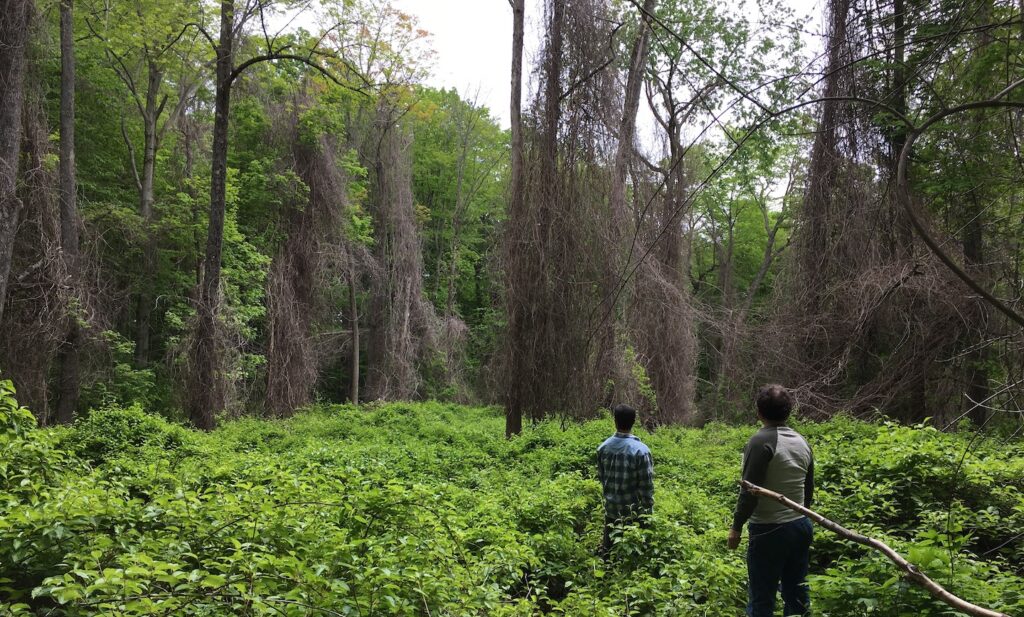
- This event has passed.
Forest Carbon and Multi-Use Forest Management — Webinar
February 16, 2022 @ 12:00 pm - 1:00 pm

Wednesday, February 16th @ noon and/or 7:00 p.m.
The influence of active forest management on forest carbon is little known for mature oak forests. This webinar will provide an overview of concepts related to forest carbon sequestration and storage in the context of multiple-use forestry. These are concepts that forest managers and woodland owners should consider when including carbon as an objective in management. Further, as a specific example from southern New England, three study areas each with six forest management practices were established in Connecticut in the early 1980s: uncut forest preserves, silvicultural clearcutting, shelterwood with final overstory removal, multi-aged crop tree, diameter limit, and high-grading. This study found that active management practices can provide valuable forest products while maintaining or increasing carbon sequestration. Management also provides the opportunity to create climate resilient forests with enhanced wildlife habitat. Presented by Drs. Joseph Orefice (Yale University) and Jeffrey Ward (Connecticut Agricultural Experiment Station).
Note that webinars are live at noon and 7PM, for an hour each, but the meeting space is reserved from noon until 8PM. Your registration allows participation in either or both the noon and 7PM webinar, and from any computer.
Related Events

Wednesday, February 16th @ noon and/or 7:00 p.m.
The influence of active forest management on forest carbon is little known for mature oak forests. This webinar will provide an overview of concepts related to forest carbon sequestration and storage in the context of multiple-use forestry. These are concepts that forest managers and woodland owners should consider when including carbon as an objective in management. Further, as a specific example from southern New England, three study areas each with six forest management practices were established in Connecticut in the early 1980s: uncut forest preserves, silvicultural clearcutting, shelterwood with final overstory removal, multi-aged crop tree, diameter limit, and high-grading. This study found that active management practices can provide valuable forest products while maintaining or increasing carbon sequestration. Management also provides the opportunity to create climate resilient forests with enhanced wildlife habitat. Presented by Drs. Joseph Orefice (Yale University) and Jeffrey Ward (Connecticut Agricultural Experiment Station).
Note that webinars are live at noon and 7PM, for an hour each, but the meeting space is reserved from noon until 8PM. Your registration allows participation in either or both the noon and 7PM webinar, and from any computer.



